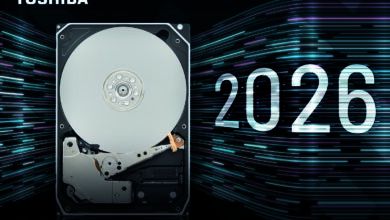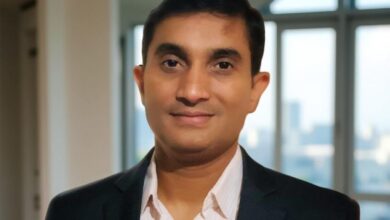Strategic Project Management as a Catalyst for UAE Vision 2031: Aligning Execution with National Ambitions

Hanny Alshazly, Managing Director for the Middle East and North Africa region at PMI.
The UAE’s transformation into a global leader in innovation, sustainability, and advanced infrastructure is no coincidence. It is the result of bold national strategies, meticulous planning, and, most importantly, effective project management. From Project Management Institute’s perspective, as the country works toward its Vision 2031 goals, project management has become a critical enabler, turning ambitious plans into tangible outcomes.
Initiatives such as renewable energy facilities and nuclear energy plants highlight how project management methodologies are driving progress, mitigating risks, and ensuring alignment with national ambitions. Project management in the UAE has evolved into a strategic discipline, integrating governance, risk management, sustainability principles and agile practices to deliver complex, multi-stakeholder programs. This shift is evident in the country’s most ambitious projects, which span sustainability, digital transformation, and advanced mobility.
Take, for example, renewable energy projects like the Masdar Renewable Power Facility in Abu Dhabi. This $6 billion clean energy plant, set to produce 1 GW of uninterrupted renewable power by 2027, is a cornerstone of the UAE’s Net Zero 2050 strategy. Its success depends on navigating challenges in infrastructure, technology, and risk mitigation.
From integrating cutting-edge renewable technologies to managing financial and operational risks, project management is central to its execution. This facility is not only a clean energy milestone but also a model of how strategic project management aligns infrastructure development with national sustainability goals.
Project management is essential to achieving sustainability targets. By embedding environmental, social, and economic considerations into every stage of the project lifecycle, project managers ensure that initiatives are strategically aligned, resource-efficient, risk-aware, and stakeholder-focused. They apply structured planning, measurable metrics, and lifecycle assessments to minimize negative impacts and maximize long-term value. Strong stakeholder engagement builds collaboration, while continuous monitoring and reporting provide transparency and accountability.
Similarly, AI and data center projects, such as the OpenAI–G42 “Stargate UAE” AI Data Center, demonstrate the role of project management in digital transformation. This ambitious partnership aims to build the world’s largest AI data center outside the U.S., with a phase-one capacity of 200 MW scaling to 5 GW by 2026. The project requires precision in technology deployment, coordination across global tech partners, and alignment with the UAE’s broader digital transformation strategies. Agile practices, which emphasize adaptability and iterative progress, are essential to managing the complexities of such a high-tech initiative. From PMI’s perspective, leveraging these methodologies positions the UAE as a global leader in artificial intelligence and data infrastructure.
Agile methodologies have transformed the way tech-driven projects are delivered, enabling teams to respond quickly to change, encourage creativity, and increase productivity. While originally most effective for small, colocated teams, agile is now being adapted for larger and more complex initiatives, often through hybrid models that combine agile with traditional methods. The benefits are clear: faster adaptation to evolving requirements, stronger collaboration, and a culture of continuous improvement.
However, successful adoption requires more than process changes; it demands a mindset shift and organizational commitment to agility. Infrastructure projects like the Etihad Rail Network further highlight the importance of project governance and stakeholder coordination. The 900 km freight network, now fully operational, connects all emirates and reduces carbon emissions by streamlining logistics.
Meanwhile, the Hafeet Rail international link—a $3 billion rail line between Al Ain and Oman—demonstrates the UAE’s commitment to regional connectivity. These projects involve multi-stakeholder governance, careful scheduling, and risk management to ensure timely delivery and alignment with national and international objectives. From PMI’s perspective, they illustrate how project management orchestrates collaboration across diverse entities to achieve shared goals.
Perhaps the most striking example of long-term project management excellence is the Barakah Nuclear Energy Plant. With the completion of Unit 4 in March 2024, the plant now contributes up to 25% of the UAE’s national electricity supply with a capacity of 5,600 MW. This decades-long infrastructure project required cross-sector coordination, adherence to nuclear regulations, and rigorous quality assurance. It underscores the importance of project management in delivering safe, reliable, and sustainable energy solutions.
These projects collectively illustrate how strategic project management practices are being leveraged to achieve Vision 2031 goals. The integration of governance, sustainability, risk management, and agile practices ensures that even the most complex initiatives are delivered efficiently and effectively. This approach is not just about meeting deadlines or staying within budgets—it is about creating long-term value that aligns with national ambitions.
The growing demand for certified project professionals in the UAE reflects this shift. Both public and private sectors are increasingly seeking individuals with the skills and credentials to manage large-scale, high-stakes projects. Certifications such as PMP (Project Management Professional) and PgMP (Program Management Professional) are becoming benchmarks for excellence, signaling a professional’s ability to navigate complexity and deliver results.
From PMI’s perspective, as the UAE continues to push the boundaries of what is possible, project management will remain at the heart of its progress. It is the invisible force that turns visionary plans into tangible outcomes, ensuring that every initiative—whether it’s a renewable energy plant, an AI data center, or a rail network—contributes to the nation’s long-term success. By investing in project management excellence, the UAE is not just building infrastructure or launching programs—it is shaping the future.




